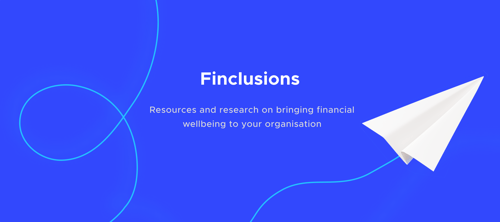Over the past year, employers have put the onus on themselves to support their colleagues with their money in various ways - many in the form of comprehensive financial wellbeing benefits. But one area of this issue is often overlooked: the commute.
Are employers putting undue financial pressure on staff to get to work when small changes could ease the burden?
Internal policies and benefits are usually built to support colleagues in the workplace - whether that's equipment allowances, food and drink, or discounted merchandise; however, do those policies support your colleagues on reaching the workplace in the first place?
Here we look at four different aspects of common workplace policies, and unpack how they could be putting undue financial pressure on workers' commutes.
1. Expenses reimbursement
Do people wait six weeks to be repaid in your organisation? Long wait times can affect cashflow and budgeting in other financial areas - such as transport and groceries, especially if the expenses are significant and unexpected. Reimbursing expenses on a more regular cycle (especially within the same pay period) can help ease the burden, and ensure employees aren't stretched elsewhere in their budget.
Better yet, if expenses are a big part of the job, is there a way to ensure every employee has access or a direct line to a company card? Not everyone needs one, but it’s useful if more people know they have the option to avoid absorbing the cost themselves.
2. Minimum contracted hours
If only limited hours are guaranteed across a week and colleagues have expensive commutes, it may be that they are reliant on extra hours to ensure the job remains financially viable. This can cause anxiety and uncertainty, especially if rostering is dependent on short-term factors e.g. the previous week’s performance.
Minimum contracted hours became a particular issue during the Covid-19 pandemic as organisations were forced to drop guaranteed hours to cope with fluctuating demand - however, most organisations are now in a better position to provide increased notice and certainty for their people.
3. Overtime pay
Many organisations have different pay cycles for overtime and it can result in staff waiting more than a month to be paid for any overtime performed. If staff take overtime pay due to a short-term need for more money, the pay cycle can reduce any positive impact overtime could have on their financial wellbeing - particularly if they're shelling out extra cash to commute to those overtime shifts. Plus, if you pay sooner for overtime pay, you also strengthen the psychological link between work and reward, which may encourage your teams to take on more overtime pay, as they receive the money far quicker.
Our recent research into flexible pay demonstrated that workers take on 11% more shifts when they have flexible access to that extra income.
4. Flexible working policies
Flexible working is a very big term and means a lot of different things to different people. It’s linked to the nature of the organisation and the industry. But there are lots of examples of how rigid rules on flexible working can make it more expensive to come to work. For example, even a slight flexibility in start & end times can save people cash on car parking, peak time public transport, and extra childcare costs, to name a few examples.
Also, allowing staff to easily swap shifts may mean parents who have to do school pick-ups can increase their hours more easily, and avoid imposing a forced cap on their earnings.
Financial wellbeing strategies do not only have to look at new benefits and practices, but how existing policies can ensure that low-income workers aren't facing unnecessary financial obstacles; and generating excess worries alongside the already-stressful subject of money.
For more ideas and actions to support your colleagues with financial wellbeing, read our recent research: Unlocking the Pay Cycle - which details the objective and subjective impact of giving workers choice over their own pay cycle.
Key takeaways
Setting defaults
as the positive action drives better results, eg. opt-out savings programmes
Social norms
can promote positive habits, as they create a sense of community and conformity, eg. discussing money worries
Immediate reward
can be more powerful than delayed gratification for encouraging positive habits, eg. prize draw for hitting savings goal
Want to receive your financial wellbeing research, resources, and action-plans directly into your inbox?

